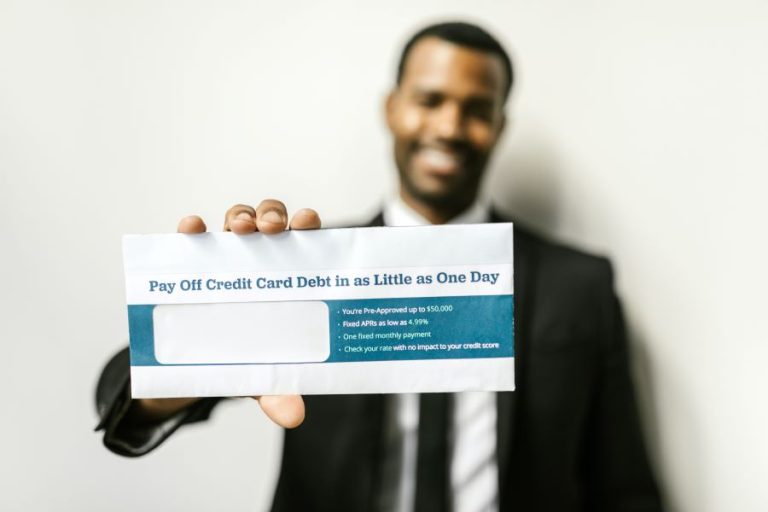
20 things to stop buying that will save you a lot of money
Welcome to a financial journey where we unveil 20 things to stop buying that will save you a lot of money. In modern age of consumerism, it’s easy to fall into the trap of spending excessively on things we don’t really need. But what if you could make a few adjustments and watch your savings grow for your later years when money can become tighter? This short write-up is here to guide you on a path towards financial freedom and perhaps can help you make savvy choices to benefit your wallet.
The Allure of Consumerism
It can be frustrating that we are bombarded with advertisements and marketing campaigns that encourage us to buy the latest gadgets, dine at fancy restaurants, and splurge on designer clothing. It’s no wonder that many of us find ourselves caught up in the cycle of consumerism, constantly chasing the next big purchase.
But here’s the thing: consumerism can be a double-edged sword. While it promises instant gratification and the thrill of new possessions, it often leaves us with empty pockets and financial stress. In this fast-paced world, it’s crucial to take a step back and reevaluate our spending habits.
The Road to Financial Freedom
Financial freedom isn’t an unattainable dream; it’s a goal that anyone can achieve with the right mindset and strategies. It’s about taking control of your money rather than letting it control you. By making informed choices and cutting out unnecessary expenses, you can pave the way to a brighter financial future.
What’s in Store
In the following sections, we will explore 20 common items that you can with ease stop buying without sacrificing your quality of life. These are practical, actionable tips that can help you save money without compromising on the things that truly matter. From your daily coffee habit to your monthly subscriptions, we’ll show you how to make smarter financial decisions.
Why You Should Keep Reading
You might be wondering why you should invest your time in reading this article. The answer is simple: knowledge is power. By the time you finish reading, you’ll be armed with valuable insights and actionable steps to take control of your finances.
It’s time to say goodbye to wasteful spending and hello to a more secure and prosperous tomorrow.
Why It Matters
Understanding the importance of saving money is the cornerstone of financial well-being. It’s not just about accumulating wealth; it’s about securing your future, achieving your goals, and gaining peace of mind. In this section, we’ll delve deeper into why saving money truly matters.
Financial Security
Financial security is like a safety net that protects you from unexpected challenges and setbacks. Imagine having enough savings to cover a medical emergency, a sudden car repair, or even a job loss. That sense of security is priceless and can relieve a significant amount of stress from your life.
When you have money saved up, you’re less likely to rely on credit cards or loans to get by during tough times. This means you won’t accumulate high-interest debt, which can be financially crippling in the long run. Instead, you’ll have the means to handle unexpected expenses without spiraling into financial chaos.
Achieving Your Goals
Saving money isn’t just about covering emergencies; it’s also the key to realizing your dreams and aspirations. Whether you dream of buying a home, traveling the world, starting your own business, or retiring comfortably, financial savings are the fuel that can power those ambitions.
Consider this: every dollar you save is a step closer to your goals. It’s the down payment on your future home, the fund for your dream vacation, or the capital for your entrepreneurial venture. Saving money isn’t a restriction; it’s a tool that empowers you to turn your dreams into reality.
Reducing Financial Stress
Financial stress is a common issue that can impact your overall well-being. Constantly worrying about bills, debt, and making ends meet can take a toll on your mental and physical health. However, when you have a solid savings cushion, that stress is greatly reduced.
Knowing that you have money set aside for emergencies and future plans can provide a profound sense of relief.
Gaining Freedom and Options
Saving money gives you the freedom to make choices based on your desires, not just your financial constraints. It means you can explore new opportunities, change careers, or take time off work to pursue a passion project. It grants you the flexibility to design your life on your terms.
Having savings provides you with options during important life transitions. If for starting a family, furthering your education, or retiring early, financial savings open doors to possibilities you might not have considered otherwise.
Truth is, saving money isn’t merely a financial strategy; it’s a life strategy. It’s about creating a stable foundation for yourself, achieving your dreams, reducing stress, and gaining the freedom to live life on your own terms.
The Power of Saving
Before we delve into the practical tips on what to stop buying to save money, let’s take a moment to understand the profound impact that saving can have on your life. Saving money isn’t just a mundane task of putting aside a portion of your income; it’s a powerful tool that can transform your financial landscape and provide you with a secure and prosperous future.
Building an Emergency Fund
One of the most immediate benefits of saving is the ability to build an emergency fund. This is a financial cushion that can protect you from life’s unexpected curveballs. Whether it’s a medical emergency, a sudden car repair, or a job loss, having an emergency fund means you’re prepared to face these challenges without resorting to high-interest loans or maxing out credit cards.
Investing in Your Future
Saving money is like planting seeds for your future financial garden. It’s not just about preserving your wealth; it’s about making it grow. By consistently saving and investing your money wisely, you can watch it multiply over time.
There are numerous investment opportunities available, from stocks and bonds to real estate and retirement accounts. These investments can provide you with passive income streams and long-term growth. The sooner you start saving and investing, the more time your money has to compound, potentially leading to substantial wealth.
Achieving Financial Goals and Dreams
Think about your most cherished financial goals and dreams. Whether it’s buying a home, sending your children to college, or retiring comfortably, these objectives often require substantial financial resources. Saving money is the bridge that can take you from where you are now to where you want to be.
Every dollar you save brings you closer to these goals. It’s not just about making sacrifices; it’s about making choices that align with your priorities. Saving money allows you to take proactive steps toward realizing your dreams and securing your financial future.
You been waiting for the nitty-gritty of the 20 things you can stop buying to supercharge your savings. Here they are in no particular order:
1. Daily Coffee
We all love our morning caffeine fix, but those daily trips to the coffee shop can add up quickly. Consider making your coffee at home to save a substantial amount over time. Invest in a good coffee maker, and enjoy a homemade brew that’s just as good as the fancy café stuff.
2. Bottled Water
Stop buying expensive bottled water when you can get clean, safe water from your tap. Invest in a reusable water bottle and a quality water filter if needed. It’s eco-friendly and budget-friendly.
3. Fast Food
While it’s convenient, fast food isn’t doing your health or wallet any favors. Cutting back on those drive-thru meals will not only save you money but also improve your overall well-being.
4. Cable TV
With the rise of streaming services, cable TV is becoming obsolete. Ditch your costly cable subscription and opt for more affordable streaming options. If you live in a city look into hooking your TV to antenna which would mean one time purchase cost or installation if needed.
5. Unused Gym Memberships
If your gym membership card is collecting dust, it’s time to cancel. Find alternative ways to stay active, like home workouts or outdoor activities.
6. Brand Name Products
Generic or store-brand products often offer the same quality as their pricey counterparts. Save money by choosing these alternatives.
7. Impulse Buys
Before making a purchase, pause and think about whether you really need it. Impulse buys can drain your wallet fast.
8. Disposable Razors
Invest in a high-quality razor with replaceable blades. It’s not only more cost-effective but also better for the environment.
9. Extended Warranties
Many products come with built-in warranties. Paying for extended warranties is often unnecessary and costly.
10. Magazines and Newspapers
In the digital age, most content is available online for free. Cancel your magazine and newspaper subscriptions to save both money and paper.
11. Single-Use Cleaning Products
Choose reusable cleaning cloths and eco-friendly cleaning solutions. They’re better for your wallet and the environment. Purchase only single use items when you find it on sale.
12. Pre-Cut Fruits and Vegetables
While convenient, pre-cut produce comes at a premium. Buy whole fruits and veggies and do the chopping yourself.
13. Excessive Online Shopping
Online shopping can lead to impulse purchases. Avoid the temptation by unsubscribing from promotional emails and using shopping lists.
14. Plastic Bags
Invest in reusable grocery bags and reduce your contribution to plastic waste. Many stores offer discounts for bringing your bags.
15. Unused Subscriptions
Review your monthly subscriptions and cancel those you no longer use or need. This includes streaming services, magazine subscriptions, and more.
16. Movie Theater Snacks
Snacking at the movies can be costly. Opt for theater snacks only on special occasions, and save by enjoying treats at home.
17. Expensive Phone Plans
Shop around for more affordable phone plans that suit your needs. Many budget-friendly options offer the same features as pricier plans.
18. Eating Out Too Often
Dining out frequently can drain your finances. Plan meals at home and treat dining out as an occasional luxury.
19. Overpriced Convenience Store Items
Convenience stores often charge a premium for everyday items. Buy in bulk from grocery stores to save big.
20. Car Wash Services
Instead of paying for car wash services, invest in some basic cleaning supplies and wash your car at home. It’s not only cheaper but also a satisfying DIY activity.
Frequently Asked Questions
FAQ 1: How can I start saving money?
Starting to save money begins with creating a budget. Track your expenses, identify areas where you can cut costs, and set specific savings goals.
FAQ 2: Are there exceptions to these money-saving tips?
Absolutely! These tips are guidelines, not strict rules. You can adapt them to your lifestyle and financial situation.
FAQ 3: Can I still enjoy life while cutting expenses?
Yes, you can. Cutting expenses doesn’t mean sacrificing happiness. It’s about making mindful choices and finding joy in simpler things.
FAQ 4: What are some long-term benefits of saving money?
Saving money provides financial security, the ability to invest in your future, and the freedom to pursue your dreams and goals.
FAQ 5: How can I track my savings progress?
Use budgeting apps or spreadsheets to track your expenses and savings. Regularly review your financial goals and adjust as needed.
FAQ 6: Is it essential to cut all these expenses at once?
No, it’s not necessary to cut all expenses simultaneously. Start with a few and gradually incorporate more money-saving habits into your life.
Conclusion
Taking control of your finances by eliminating unnecessary expenses is a smart move. By stopping these 20 things from eating away at your hard-earned money, you’ll be on your way to financial stability and achieving your financial goals. Every dollar saved today is an investment in your future. Go ahead, make these changes now, and watch your savings grow. It’s your path to financial freedom.






